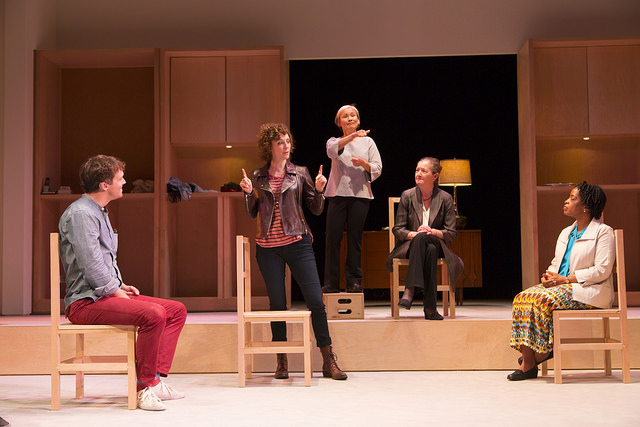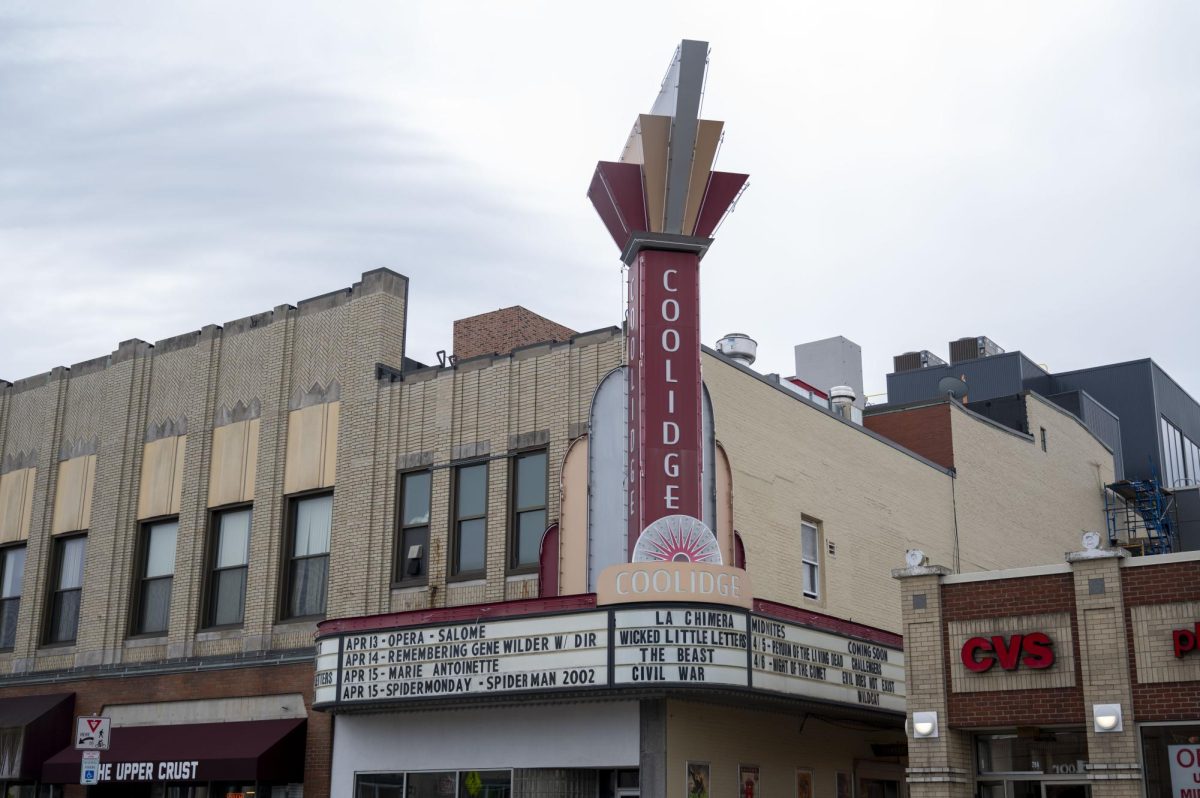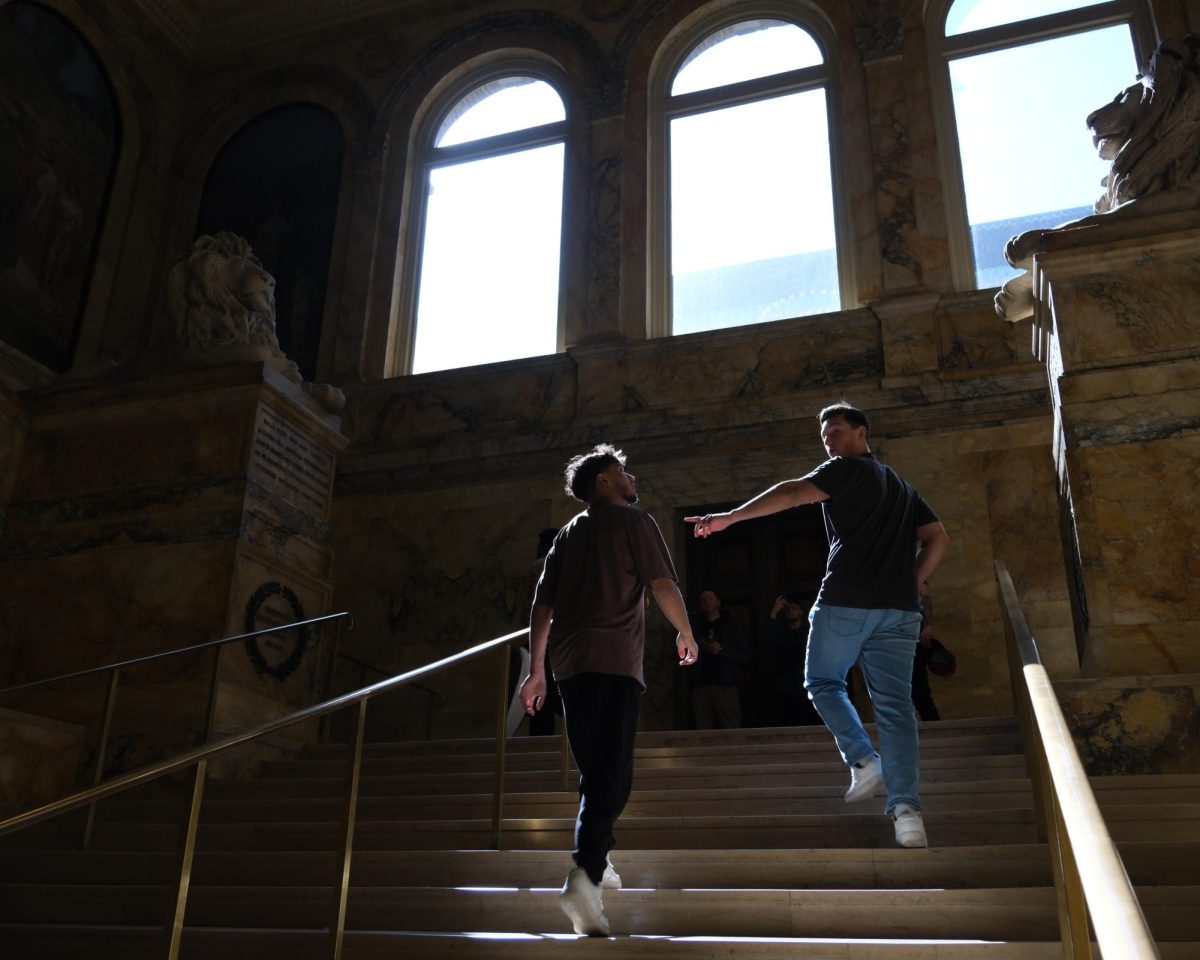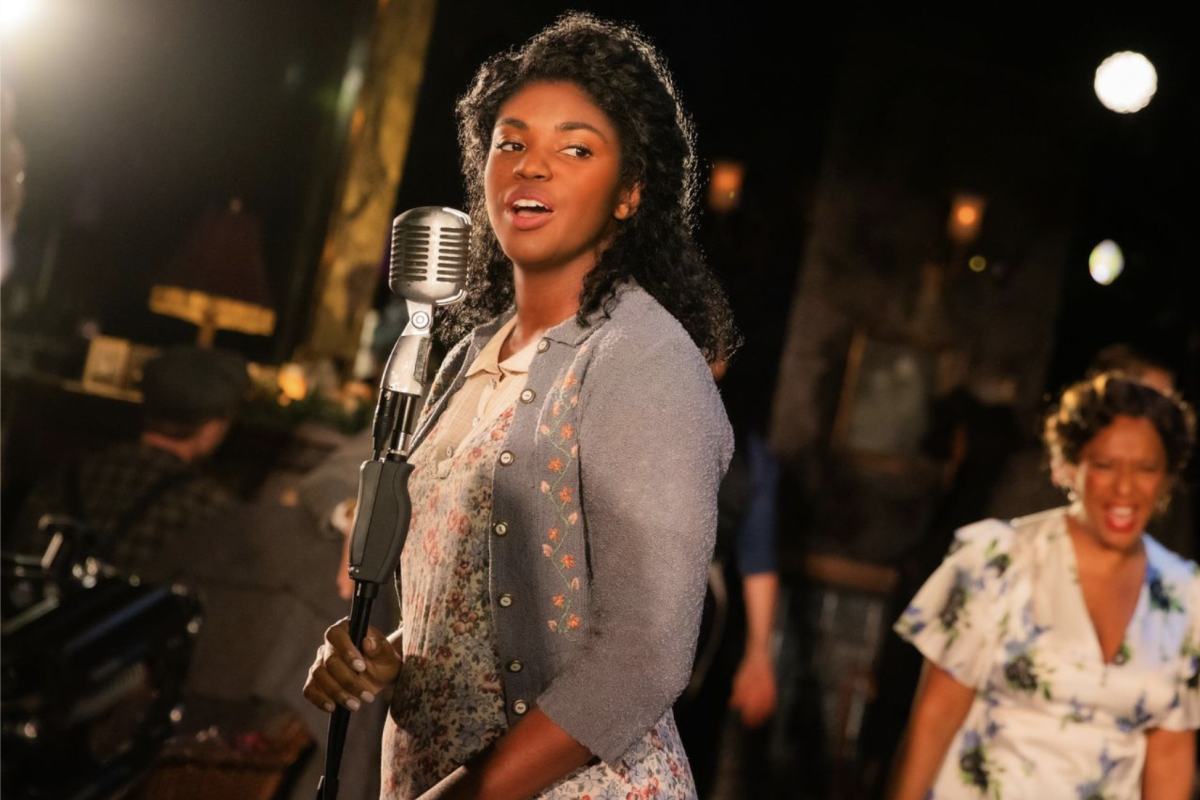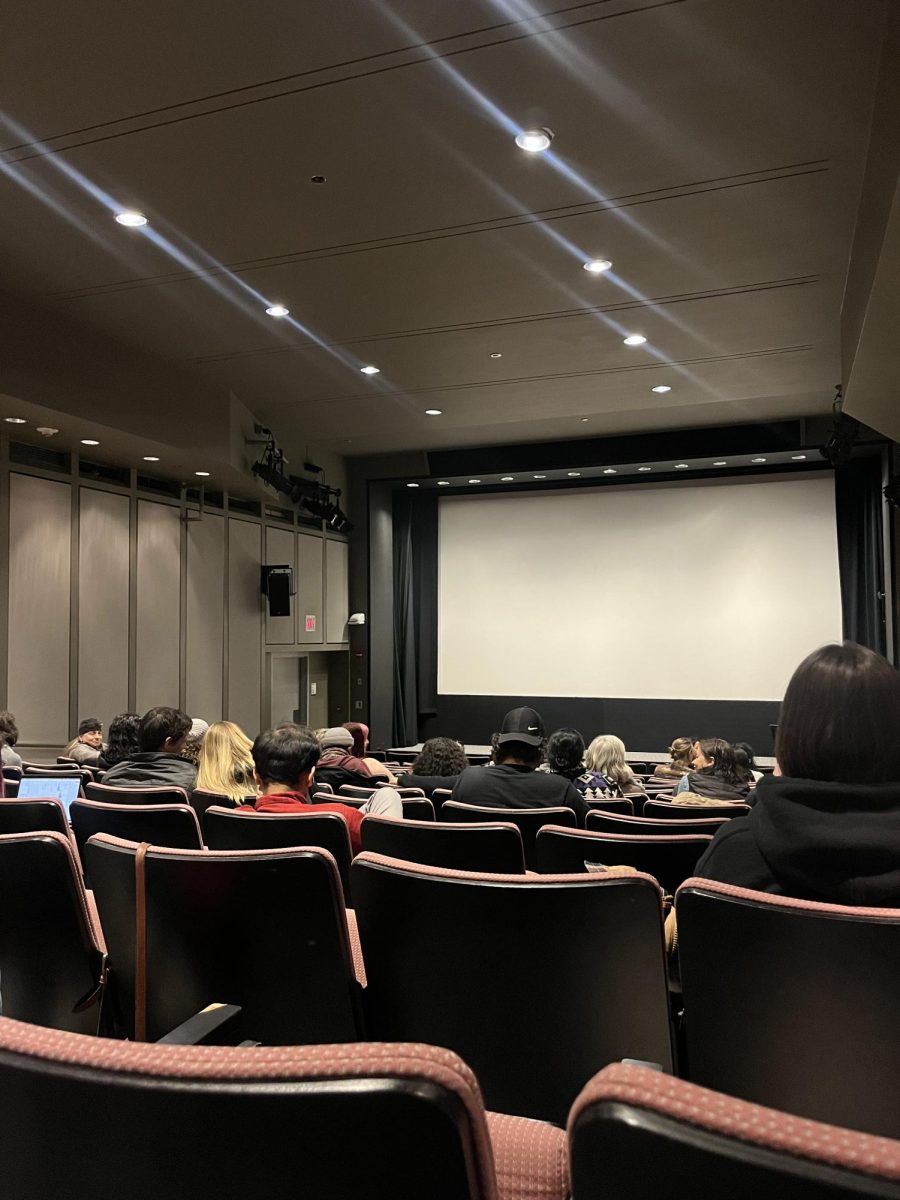By Juan A. Ramirez, arts & entertainment editor
The challenges faced by a deaf, gay recovering alcoholic are something most could never understand. And yet, in “I Was Most Alive With You,” a new play written and directed by Craig Lucas, this man’s burden becomes a universally recognizable struggle for endurance.
The play, created by Lucas for the Huntington Theatre Company that received its world premiere at Calderwood Pavilion at the Boston Center for the Arts, is a new installment in a growing number of theatrical productions performed simultaneously in English and American Sign Language, with “shadow interpreters” mirroring the English-speaking cast onstage.
A breakthrough in accessible theatre that is gaining popularity with shows like Deaf West’s production of “Spring Awakening” transferring to Broadway, the sometimes-discombobulating approach emphasizes the difficulties in communication shared by a family weathered by years of addiction, denial and loss.
The basic premise is nothing new to American drama: A disjointed family gathers for Thanksgiving dinner. Knox (played by Russell Harvard), the deaf 30-something son of a recovering alcoholic and an acidic mother, introduces the family to his newest boyfriend, Farhad, whose own addictions show no signs of stopping. Also present are the family’s imperious grandmother, her live-in nurse and Astrid, the father’s writing partner and not-so-secret admirer with whom he is collaborating on bringing the biblical tale of Job to television.
If all of this ever threatens to go overboard – and it veers very close – with its juggling of themes, relationships and ideas, it is rescued by an earnestness and lucidity often lost in the seemingly mandatory irony of contemporary theatre. In creating characters who are neither angelic nor demonic but, like so many of us, stuck in-between, Lucas maintains a dynamic friction between the family that propels the plot through.
The non-linear work shifts between the fateful holiday and its results a few months later, when the family relapses into old behaviors and seems to be on a collision course towards disaster. Though never reaching the searing familial drama of works by Edward Albee or Tennessee Williams, Lucas has provided us a family perpetually stuck in transit, forced to constantly come to terms with their failures and misgivings. Knox, we learn, has not spoken to his mother in months because of her refusal to learn ASL; she is resigned because of her misguided belief that teaching him to speak at an early age was the best choice.
The performances, both of the actors and interpreters, are evenly strong, though it is Marianna Bassham’s portrayal of Astrid, the outsider and would-be mistress, that keeps the show grounded by maintaining a self-deprecating wink in one eye and a hint of sadness in the other. A monologue delivered late in Act 2, in which she reminds Knox that everyone is, in their own way, a victim and survivor, is undoubtedly the play’s finest moment.
It is then that we realize why Lucas has bothered to imbue the work with biblical references and undercurrents; rather than just being another layer to consider, we realize “those who wish to cross the flood,” as a featured prayer goes, are often the same as those wishing to be their guiding light. In a family – and a world – full of moral gray areas and ambiguities, Lucas suggests communication across lingual, religious or sexual boundaries is the key to endurance.
The blocking, with the interpreters sometimes directly behind the actors and sometimes performing the same scene elsewhere on stage, can be clunky and distracting, especially during key moments when the audience knows not where to look. Other production aspects shine through, however, such as the marriage of Mark Barton’s lighting and Lucy Mackinnon’s project design, which transition the story from past to present and excel at creating an ominous yet cozy mood.
The success of this production comes from its ability to allow us peek into a world that is wholly unlike our own yet immediately recognizable. Though some characters only rarely transcend their archetypal designs, Lucas’ words and ambitions are made brilliantly clear. The true achievement here is that they are made clear for not one, but two audiences.
“I Was Most Alive With You” is in performance at the Huntington Theater Company’s Calderwood Pavilion at the Boston Center for the Arts through June 26.
Photo courtesy T. Charles Erickson







